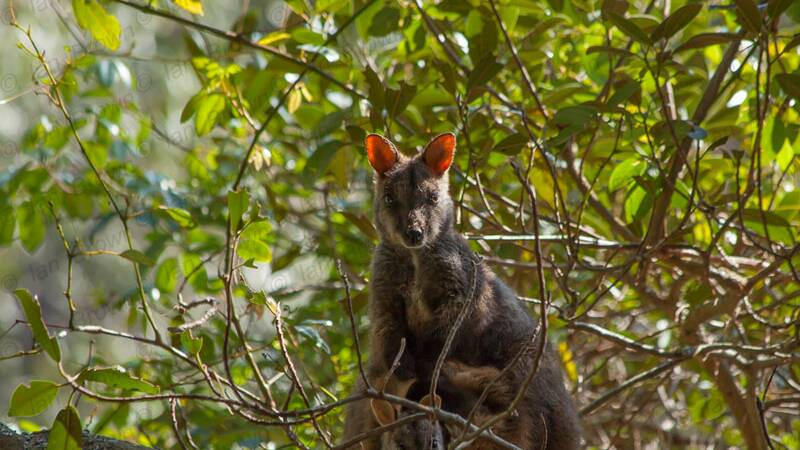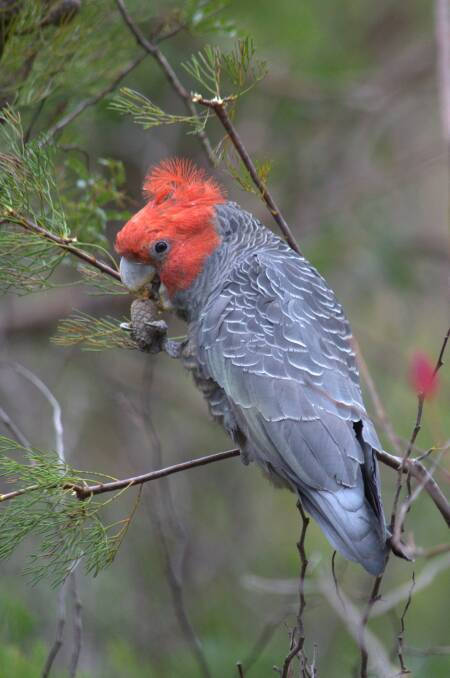After an unprecedented and ongoing fire season, the Blue Mountains Conservation Society has called on the state and federal government to take "immediate action to mitigate rapid climate change" and fully fund National Parks and Wildlife Service to bring in a comprehensive recovery plan for the region.

The news comes as Premier Gladys Berejiklian has today announced an independent expert inquiry into the 2019-20 bushfire season to provide input to NSW ahead of the next bushfire season.
Dave Owens, former Deputy Commissioner of NSW Police, and Professor Mary O'Kane AC, Independent Planning Commission Chair and former NSW Chief Scientist and Engineer, will lead the six-month inquiry, which will review the causes of, preparation for and response to the 2019-20 bushfires.
Conservation Society vice president, Madi Maclean, said with almost 80 per cent of the Greater Blue Mountains World Heritage Area (GBMWHA) burnt (more than 838,000 hectares) and 140 million reptiles, birds and mammals (excluding bats) impacted locally, governments could no longer ignore the impacts of a rapidly changing climate and extreme drought being played out on the biodiversity of the GBMWHA.
She said governments must set out what needs to be done to address the massive impacts on plants, animals and the forested environment across Australia, with a full assessment of the fires' impacts locally and a comprehensive well-funded recovery plan, based on evidence and scientific expertise.
"We urgently need action to ensure the remaining 20 per cent is protected ... whatever is unburnt at the end of the fire season will be precious ...as it is a seed bank to restore the 80 per cent and also acts as a refuge for wildlife," she said.
"Biodiversity protection and recovery must be the fundamental goal," she said.
Ms Maclean said that required real action based on evidence and scientific expertise.
The Society was concerned genetic diversity in the area will be "greatly reduced, species may be lost" without action.

"Many species, and possibly ecological communities, will be locally threatened. Our world renowned biodiversity is at risk and it's imperative we work to restore and protect it."
Increased resources and funding to control feral animals and invasive species was also urgently needed.
The Society has also asked the government to support "public servants to be able to speak freely at any inquiries which may be set up. We want to see those ground rules," Ms Maclean said.
The recovery plan should include: comprehensive fire intensity mapping; recognising the scale of the fires may take longer and the funding should provide for this; increased funding for Parks biodiversity staff and naturalists; identifying unburnt areas which have provided refuge but, in the current situation, may be compromised by ongoing drought and extraordinary temperatures; identifying adjacent high conservation value lands which could assist recovery; assessment of how fire behaved in existing hazard reduced areas and specifically addressing the impacts of the fires on the Outstanding Universal Values of the GBMWHA (the reason for its World Heritage recognition).
The statement on bushfires is on the Society's website: www.bluemountains.org.au
The Premier's inquiry will commence within days and accept submissions from the public.
It will consider:
- 1. The causes of, and factors contributing to, the frequency, intensity, timing and location of, bushfires in NSW in the 2019-20 bushfire season, including consideration of any role of weather, drought, climate change, fuel loads and human activity.
- 2. The preparation and planning by agencies, government, other entities and the community for bushfires in NSW, including current laws, practices and strategies, and building standards and their application and effect.
- 3. Responses to bushfires, particularly measures to control the spread of the fires and to protect life, property and the environment, including: (a) immediate management, including the issuing of public warnings; (b) resourcing, coordination and deployment; and (c) equipment and communication systems.
- 4. Any other matters that the Inquiry deems appropriate in relation to bushfires.and to make recommendations arising from the Inquiry as considered appropriate, including on:
- 5. Preparation and planning for future bushfire threats and risks.
- 6. Land use planning and management and building standards, including appropriate clearing and other hazard reduction, zoning, and any appropriate use of Indigenous practices.
- 7. Appropriate action to adapt to future bushfire risks to communities and ecosystems.
- 8. Emergency responses to bushfires, including overall human and capital resourcing.
- 9. Coordination and collaboration by the NSW government with the Commonwealth government, other state and territory governments and local governments.
- 10. Safety of first responders.
- 11. Public communication and advice systems and strategies.

